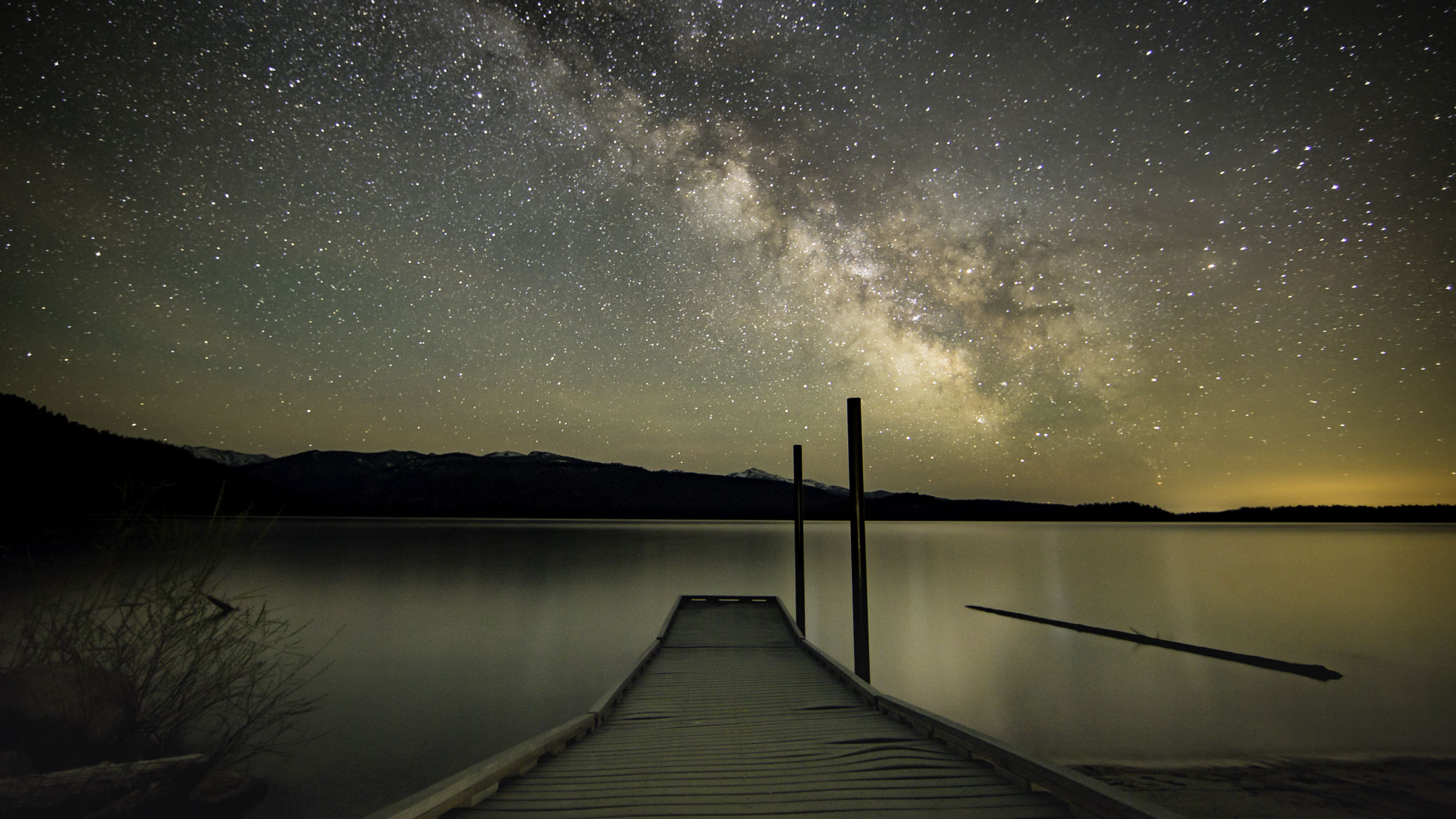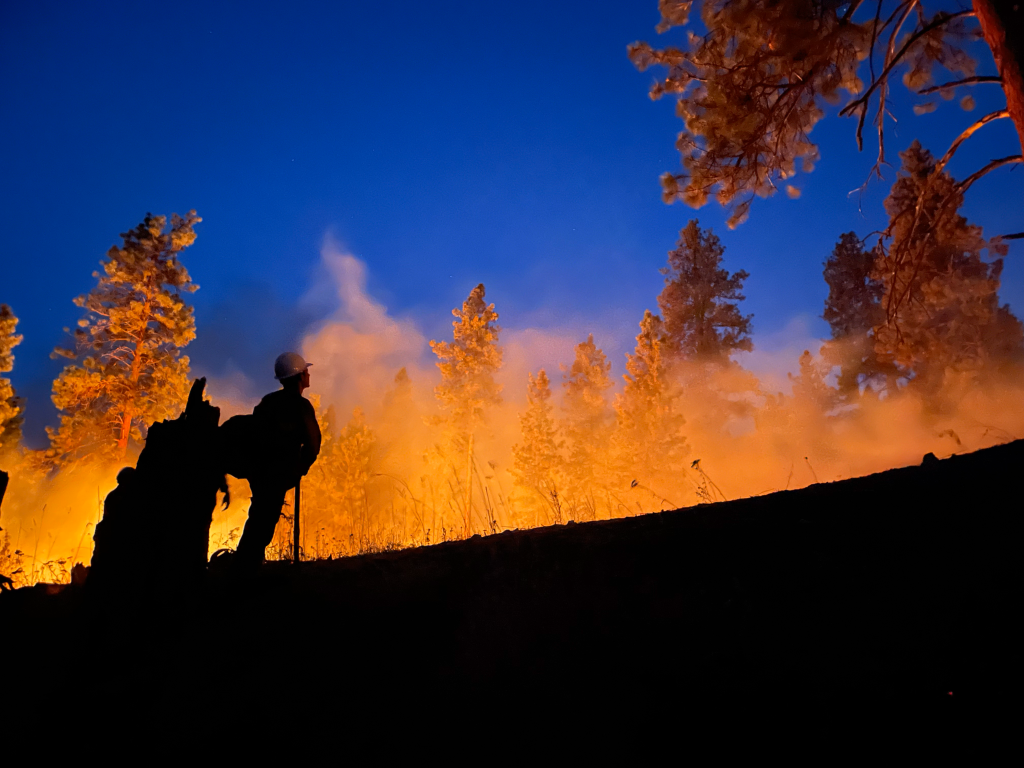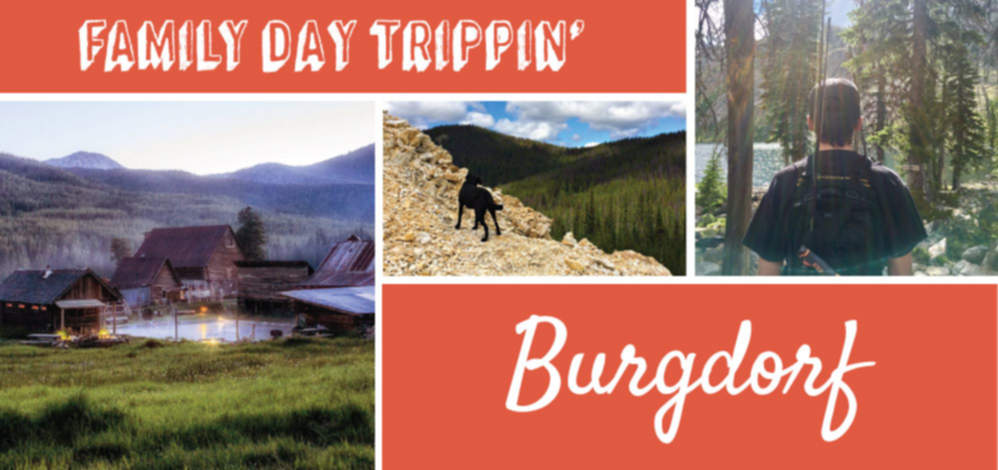As kids, a lot of us fell asleep each night to the ambiance of glow-in-the-dark star stickers. We heard the stories of Ursa Major the Great Bear, Orion the hunter, the Gemini twins and the Seven Sisters. We can all identify the Big Dipper. The lure of the stars and the space beyond has a magical quality. That is what keeps Chuck Smith with the Valley County Astronomical Society coming back for more. “I have always wondered what’s out there,” he says.
The hunt for a dark sky is something residents of Valley County often take for granted. The rural nature of our communities paired with the growing movement to preserve our dark skies makes the McCall area a prime place to view the stars. “All you really need is to be in a place between the horizons,” says Smith. Which means just about anywhere you choose to look up is perfect for stargazing. And once you look up, what a view!
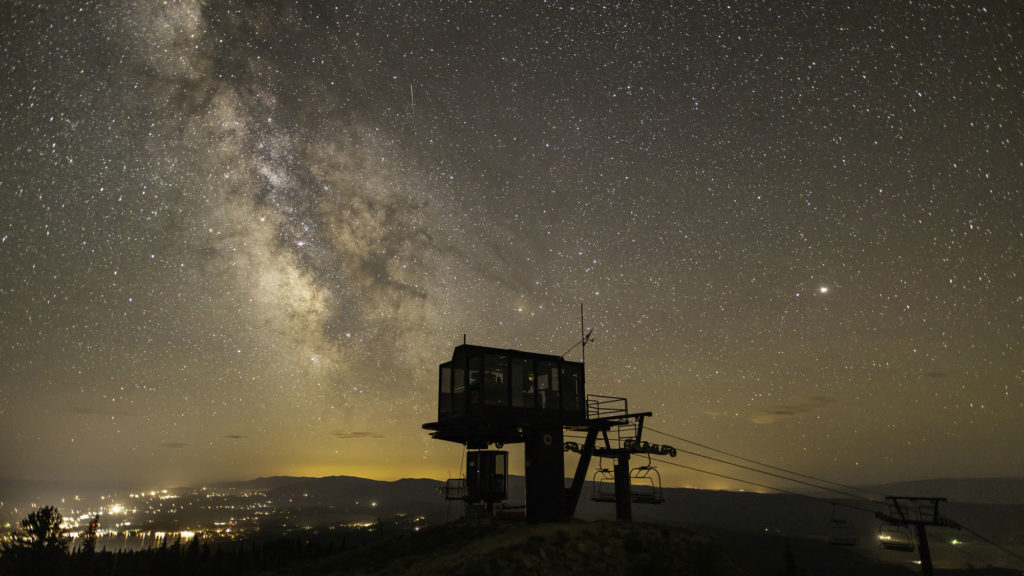
Beyond the familiar constellations, Smith says that there are some really special things to see in the night sky. The most prominent is the Milky Way Galaxy. Even without a telescope or binoculars, this galaxy shows up as a hazy band of light to the naked eye. The best chance for viewing the Milky Way is at least 40 minutes after the sky turns dark. “It takes at least that long for your eyes to adjust fully to the dark,” says Smith. For the best experience, try limiting your exposure to light as your eyes adjust. “A car’s interior lights or cell phone screen can reset the clock.”
During the summer months, the Perseid meteor shower is a great event to watch with the whole family. This annual meteor shower happens mid-August when the Earth passes through a stream of debris left behind by comets and asteroids. The small debris collides with the Earth’s atmosphere where they burn up and appear to us as shooting stars. At the peak of the show, expect to see as many as 30 “shooting stars” each hour in the McCall area.
One of Smith’s favorite objects to look at is the M13 Cluster, also known as the Great Cluster in Hercules. The stars that make up this “globular” are thought to be more than 12 billion years old. To see this one, you will need a telescope and know where to look. M13 is located in the constellation Hercules between two of the brightest summer stars, Vega and Arcturus.
Other fascinating sights a telescope can reveal are the Whirlpool Galaxy and the Ring Nebula. The Whirlpool Galaxy is near the Big Dipper and it noticeable for its two distinct “swirls.” Although a telescope will bring out more definition, this galaxy can come into view with a pair of binoculars as well. To view the Ring Nebula, however, a telescope is the way to go. “The Ring Nebula is actually the remains of a star that went supernova,” says Smith. “Now it looks like a smoke ring.”
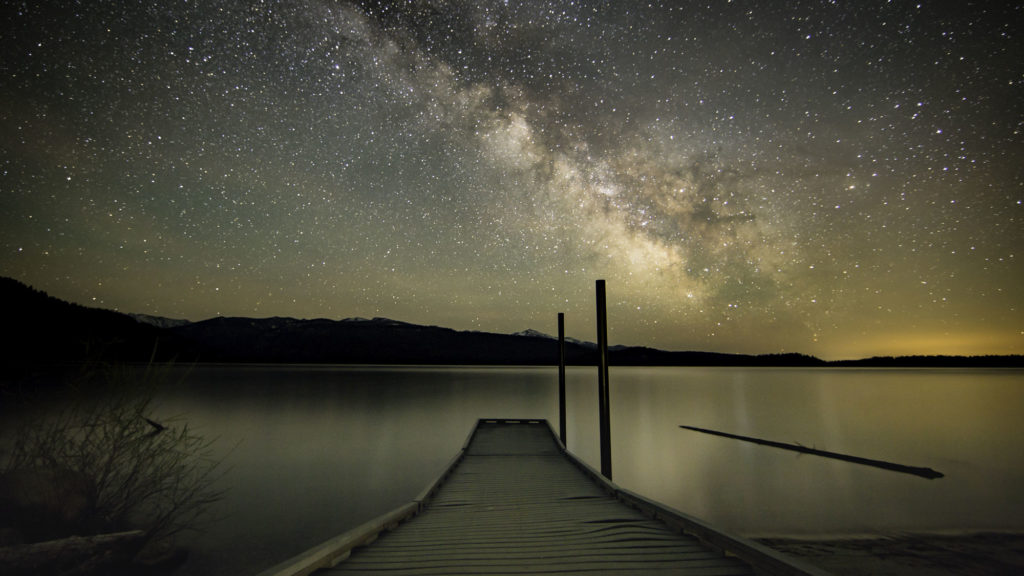
Even without a telescope, there is still plenty to see. One tool that will help you navigate the skies is a current star wheel. “A star wheel can show you where all the major constellations, deep space objects and planets will be based on your location and the time of year,” says Smith. “It is basically a road map to the night sky.” Another helpful tool is a green laser. These lasers can help you point out sights to your companions. “Just be aware of your surroundings,” says Smith. A green laser is great to use with a small group, but are typically banned at larger gatherings or stargazing events as they can be distracting in large numbers.
Whether you are an amateur or seasoned stargazer, the night sky provides an opportunity to see something remarkable. Smith says that one of his favorite things about astronomy is the science of it. “The photons that make up the light you see are traveling huge distances,” he says. “The light that hits your eyes is unique to your position; no one else gets that exact same light.” Talk about seeing things in a whole new light.

